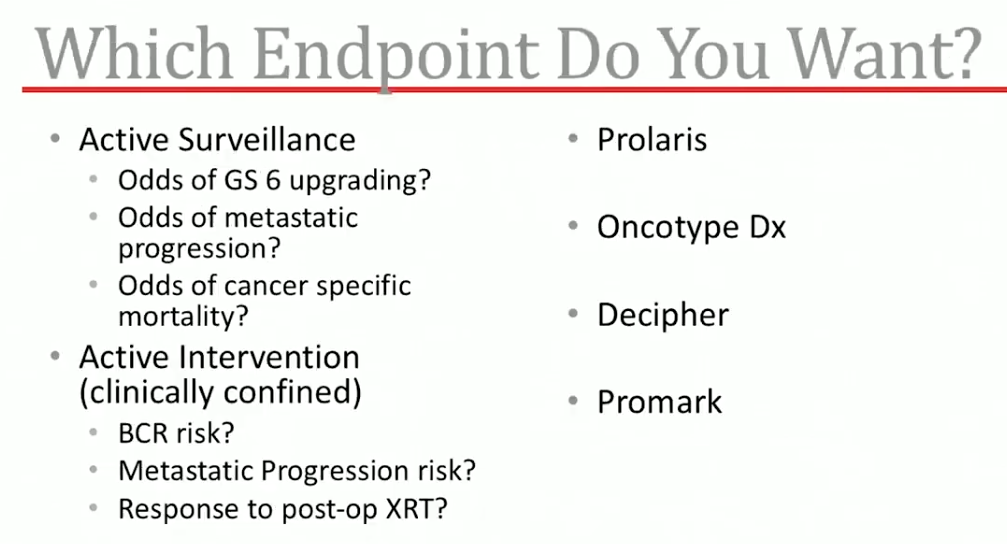John W. Davis, MD, FACS, presented “The Pros and Cons of Genomic Markers for Biopsy Guidance” during the 23rd Annual Innovations in Urologic Practice on September 14, 2018 in Santa Fe, New Mexico.
How to cite: Davis, John W. “The Pros and Cons of Genomic Markers for Biopsy Guidance” September 14, 2018. Accessed Apr 2024. https://grandroundsinurology.com/the-pros-and-cons-of-genomic-markers-for-biopsy-guidance/
The Pros and Cons of Genomic Markers for Biopsy Guidance – Summary:
John W. Davis, MD, discusses the benefits and limitations of utilizing genomic markers in order to guide prostate biopsy. While genomic markers may not be reliable risk stratification tools alone, they may play a role in risk-refining certain populations and providing information beyond clinical parameters.
Abstract:
This is a partner presentation coupled with Dr. Guilherme Godoy’s “The Pros and Cons of Imaging for Biopsy Guidance.”
There is a constructed debate between MRI image guided biopsy and genomic biomarkers in the urologic community. However, the optimal approach to assessing tumors likely involves a complementary pathway using both at the appropriate time.
Urologists have requested genomic markers for decades due to the limitations of Gleason scores at reflecting the true metastatic and/or disease specific mortality potential of a tumor. Although, evidence shows biopsy Gleason score and radical prostatectomy Gleason score have significant discordance.
Currently, genomic markers are prognostic and not predictive. However, they often have more prognostic power than clinical parameters. Both will have increased cost potential, but perhaps cost savings with proper downstream decisions in active surveillance monitoring versus treatment. The pro side of genomic markers includes robust clinical validation, information beyond clinical parameters, as well as consistency across labs compared with MRI quality.
About Innovations in Urologic Practice
Innovations in Urologic Practice (IUP) is an annual CME-accredited conference devoted to updating urologists on the rapidly changing healthcare environment. Topics focus on innovative diagnostic and treatment strategies, controversies, new and currently developing technologies, and challenges in today’s urologic practice. Dr. Davis presented this lecture during the 23rd IUP in 2018. Please visit this page in order to learn more about future IUP meetings.





